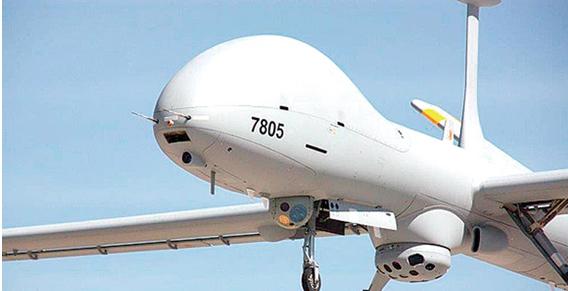According to the updated data of the Stockholm International Peace Research Institute (SIPRI), Israel is the fifth largest arms supplier in the world with $1.26 billion of sales last year, following the US, Russia, France and Germany. India is by far Israel’s largest weapons market, having bought $715 million worth of weaponry in 2017, down slightly from the $767 million that it bought in 2016. This represents a whopping 650% increase in arms sales by Israel to India over the last decade.
Israel is India’s second largest source of arms, lagging far behind Russia, which sold New Delhi $1.9 billion’s worth, but significantly ahead of both France and the US. According to the SIPRI database, Vietnam is Israel’s second largest customer, having purchased $142 million in arms in 2017, making Israel its second largest arms supplier, after Russia. According to Israeli official figures for its arms industry, military exports reached $6.5 billion in 2016, the last year for which figures are available. That was an $800 million increase from the year before, according to Sibat, the Defense Ministry’s military exports unit.
Azerbaijan – a Muslim country on Iran’s border – is the third largest weapons market for Israel, having bought $137 million worth in 2017, a steep decline, however, from the $248 million it bought in 2016. Israel is Azerbaijan’s largest arms supplier.
The SIPRI data ranks Israel 18th regarding the importation of arms, having spent $528 million on foreign arms last year, fully 97.5% of it imported from the US, and the rest coming from Germany. In the past decade Israel has only imported arms from the US, Germany, Italy and Canada.
According to the SIPRI data, in 2017 Israel sold $11 million in arms – Dvora patrol boats – to Myanmar. Israel came under fire last year for arms sales to that regime, accused of carrying out ethnic cleansing. Last year was the first year Israel sold arms to Myanmar since 2011.
Among other trends culled from the data: For the second year in a row, Israel sold no military equipment to Turkey, a country that in 2009 bought some $320 million worth of Israeli weapons, making it far and away Israel’s top arms client that year and the Philippines emerged as a major market for Israel for the first time in 2017, having spent $21 million on radar and antitank systems.
Israeli Weapons deals with two Asian countries, Singapore and South Korea, slipped precipitously last year, according to the SIPRI data, with South Korea, not making any purchases in 2017 compared to the $52 million in military equipment it bought from Israel in 2016. The amount sold by Israel to Singapore dropped from $43 million in 2016 to only $2 million last year. Italy is the fourth largest purchaser of Israeli arms, and the biggest customer in Europe, having spent $87 million in 2017 for Israeli airborne early warning and control systems. Cyprus spent $23 million on an offshore patrol vessel for its coast guard to protect the Cypriot Exclusive Economic Zone and the Aphrodite gas field. The only other time that country had ever bought military equipment from Israel was a million dollar deal in 2002.
Last week the Israeli government announced plans to privatize the Israel Military Industries (IMI), the state arms maker whose portfolio includes the Uzi submachine gun. IMI is being sold to Elbit Systems for 1.8 billion shekels ($520 million).
Few details about the IMI sale have been released. The deal will create a company with a heavy emphasis on research and development, with a product range that will extend from IMI’s shoulder-launched missiles, precision-guided mortar munitions and rocket-propulsion systems to Elbit’s portfolio of avionic systems, drones and intelligence and cyber-technology. Elbit Systems, is the Israel’s biggest private-sector arms maker.
Elbit, which is controlled by Michael Federmann, has been snapping up other Israeli defense companies over the years. Among Elbit’s biggest acquisitions are its purchase of Nice Systems’ cybersecurity unit for $158 million three years ago and its acquisition of Soltam Systems for $90 million in 2010. Between 2005 and 2011, Elbit also acquired Tadiran Communications for $410 million and Elisra for $135 million.
By most estimates, Elbit dominates Israeli Defense Ministry procurements for land-based equipment, with some saying it accounts for 80% of the total while others contend that its share is 60%.
In 2016, based on a rate of 3.8 shekels to the dollar, state-owned Rafael was the biggest supplier of weaponry to the Defense Ministry, selling 3.5 billion shekels worth, or 31% of all procurement. For Elbit the number was 2.23 billion shekels, and for IMI, it was 1.21 billion shekels. Therefore, if Elbit and IMI had already been merged that year, their combined share would have been 30%. Israeli Aircraft Industry (IAI) had sales of 2.9 billion shekels, or a 26% market share. These figures do not include exports, which make up a large part of all these companies’ revenues.



